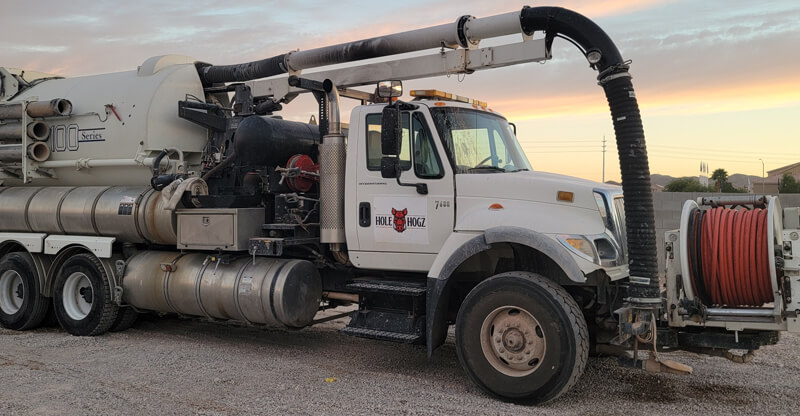6 Situations Where Hydro Excavation Is Ideal
Hydroexcavation is always the best choice.
Posted 03:44 September 09, 2024
Last Updated 03:44 September 09, 2024

Hydro excavation has become a preferred method for many digging and excavation tasks due to its precision, safety, and environmental benefits. There are specific situations where hydro excavation is particularly ideal, as it can address challenges that traditional excavation methods struggle to handle. The following outlines six key scenarios where hydro excavation proves to be the best solution, each building on the technological advantages that this method offers.
The first situation where hydro excavation is ideal is in locating underground utilities, often referred to as daylighting. As cities and infrastructure have grown, the underground networks of pipes, cables, and conduits have become increasingly complex. Traditional digging methods pose a significant risk of accidentally striking these utilities, leading to service disruptions, damage, and potentially dangerous situations. Hydro excavation minimizes this risk by using water to gently expose utilities without causing harm. This makes it the preferred method when precise digging is necessary to locate and safely work around buried infrastructure.
Another scenario where hydro excavation excels is in areas with challenging soil conditions, such as frozen ground. In colder climates, traditional digging methods can struggle to break through the hardened ground, requiring heavy equipment and sometimes heating methods that increase costs and time. Hydro excavation, especially when paired with heated water systems, can efficiently break up frozen soil. This capability allows for faster and safer digging in winter conditions, reducing project delays and lowering the risks associated with working in extreme weather.
Hydro excavation is also the best option for sensitive environments where minimal disturbance is required. This includes ecological sites, urban parks, or areas near water sources. Traditional mechanical digging can cause significant disruption to the surrounding area, potentially leading to soil erosion, vegetation damage, and sediment runoff into waterways. Hydro excavation is much more controlled, as it breaks up soil with water and immediately vacuums it into a storage tank. This reduces environmental impact and keeps the excavation site clean, making it ideal for projects where preserving the natural surroundings is a priority.
In industrial settings, particularly around refineries and chemical plants, hydro excavation is a safer alternative due to its non-destructive nature. These environments often contain sensitive equipment, pipelines, and hazardous materials, where a simple mistake can lead to costly damage or even catastrophic accidents. Traditional digging methods using mechanical equipment create a higher risk of damaging underground assets. Hydro excavation eliminates direct contact with the ground, reducing the likelihood of damage to critical infrastructure. The precision of the method also allows operators to dig around complex systems with greater safety and control.
Another ideal use for hydro excavation is in confined or hard-to-reach areas where large equipment cannot easily operate. In densely built urban environments or inside industrial facilities, space is often limited, and maneuvering large machinery can be difficult or even impossible. Hydro excavation trucks, however, are more mobile, and the use of long hoses allows them to access tight spaces without needing to position the entire vehicle directly over the excavation site. This flexibility makes hydro excavation a practical solution for tasks in restricted spaces.
Finally, hydro excavation is ideal for emergency repairs, particularly in cases where time is of the essence. When a utility line is damaged, quick access to the problem area is crucial to restore services or address safety hazards. Traditional excavation methods can be slow, particularly if the damaged utility is located in a densely packed underground network. Hydro excavation, with its speed and precision, allows for rapid exposure of the damaged utility without increasing the risk of further damage. This makes it an indispensable tool in emergency situations where every minute counts.
In conclusion, hydro excavation proves to be the best method in a variety of situations, from locating underground utilities to working in sensitive environments or emergency repair scenarios. Its precision, safety, and adaptability make it a versatile solution for modern excavation challenges, ensuring projects can be completed efficiently and with minimal risk.
If you'd like to discuss an upcoming excavation project, contract the professionals here at Hole Hogz. We service Las Vegas, Henderson, Boulder City, and most parts of Clark County Nevada.
